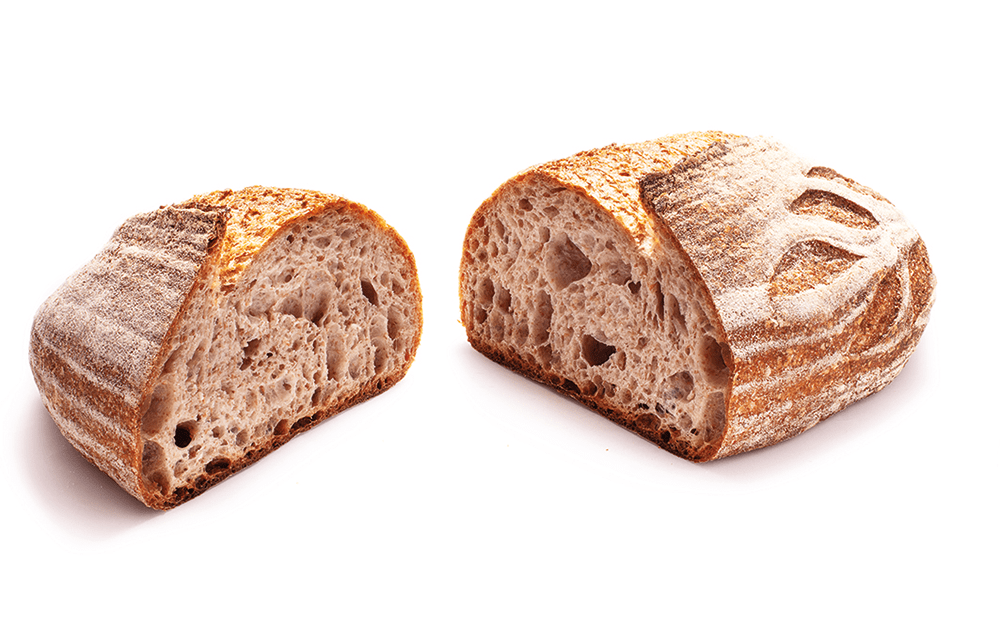Are radical lesbians dictating what we can and cannot eat, through the offices of this very magazine? It would certainly seem to be the case. A year ago this month, Julie Bindel wrote on The Spectator’s website disparaging sourdough bread with even more venom than she reserves for her more usual targets, i.e. those men-lady people and er, men. What has happened since that vigorous diatribe is the gradual disappearance of sourdough from the shelves of our supermarkets, as if by official edict. Marks & Spencer used to be full of the stuff, but my two local stores no longer stock packaged sourdough and the same is true to only slightly less a degree with Waitrose. I will not bother mentioning any of the other supermarkets as I assume you are as unfamiliar with them as I am.
Sourdough is appalling, jaw-breaking stuff, takes an hour to toast and tastes of carpets
Anyway, Julie was absolutely right to assert that sourdough seemed almost to hold a monopoly on the bread counter – and it had long since pushed out focaccia. Now focaccia has made a comeback, even if most of the focaccia in supermarkets is dry as dust. Julie was also right, I think, in her aversion to sourdough, which she suggested had taken hold of us during the Covid lockdowns. It is appalling, jaw-breaking stuff, takes an hour to toast and tastes of carpets. I first ate it in San Francisco in about 1990, when it was used to house the overrated clam chowder I had ordered. Nobody thought of eating the bowl afterwards. Its ubiquity on bread counters – and the consequent absence of any other forms of bread other than common or garden white and brown sliced – was extremely irritating and so I give grateful thanks to Julie for her intervention, even if I am disinclined to approve in principle of lesbian activists dictating what we can and cannot munch on when the mood takes us.
We pay too much attention, I think, to party politics, elections and the like. It may be that – as many seem to believe – we are now in the grip of a deranged far-left cabal which will see us all into the poorhouse and with a Muslim majority in the country by 2029. Or it may be that my view is right and that we are governed by a stupefyingly boring conglomeration of slightly right-on middle managers who possess neither the imagination nor the ideology, frankly, to effect much of a change on our country. The correct approach to elections either way is simply to assume that whoever gets in will make things a little worse and that we are in a period of unarrestable decline which doesn’t really matter because we’ll all be stiff as a stoat soon enough. I do not mean to sound cynical, just realistic. The real changes which happen to our country flow from a different stream to politics, and battling against them is far more difficult than voting your local MP out of office every few years. Sourdough is just one example – a case of product overreach with each supermarket (and restaurant) trying to out-sourdough the other.
I’ll tell you what else is disappearing, too – certainly in the more fashionable London bakeries. Samosas. These delicious ‘Indian’ snacks are being deposed by the more fashionable but far less tasty empanadas. That’s what our food providers think we yearn for, and so it’s goodbye samosas, because there’s only room for one savoury triangularish pastry on the counter. Food in general is an excellent example of our lives changing in innumerable ways as a consequence, not of party politics, but through a multitude of cultural shifts, accidents, busybodies and lobbyists and so on. What bread we eat has been dictated largely by middle-class snobbery for the past 300 years, to take one example. Refined, unrefined, brown and white – all subject to the changing peccadillos of the affluent, the decline of oats as a cash crop, the introduction of the potato, and much more besides.

Meanwhile, you may have noticed that your tinned soup tastes of nothing, because there’s no salt in it, and that the chocolate bar you purchased – a Yorkie, for example, once so big and chunky that it was advertised as being ‘not for girls’ – seems to be about a quarter of the size that it used to be. Both of these changes, which have made my life ever so slightly worse in the past couple of decades, are the consequence of campaigning charities, medical lobbyists and other such do-gooders deciding that we have to eat what they think is good for us. They lobby the food industry with an obsessive, psychotic intensity – and hence you now have tomato soup which is free of that killer, salt, and your portion of sugar, your little treat to assuage life’s inchoate miseries, is much smaller than it was before. I would much rather Julie Bindel was in charge of deciding what I am allowed to eat than the General Medical Council, the Lancet, the British Medical Association and so on.
For many years, I have railed against our left-wing establishment, only to be informed by liberal colleagues that it cannot be a left-wing establishment because we have a Conservative government. That was always a fantastically fatuous observation: we have had a left-wing establishment for a good 40 years and it shows no signs of being winnowed away. You can vote whatever way you want to, but you’ll still be left with the patronising and progressive BBC, advertisers who think we all live in mixed-race families and adore rap music, corporations desperate to pretend they are right-on, a judiciary which feels more sorry for the perpetrator than the victim (unless the perpetrator is right-wing), a bone-headed teaching establishment which embraces critical race theory and a post-rational approach to biological sex, monocultural (i.e. left-wing) universities, and arts trusts and foundations which loathe everything about our country, especially the culture of the white folk who live in it.








Comments